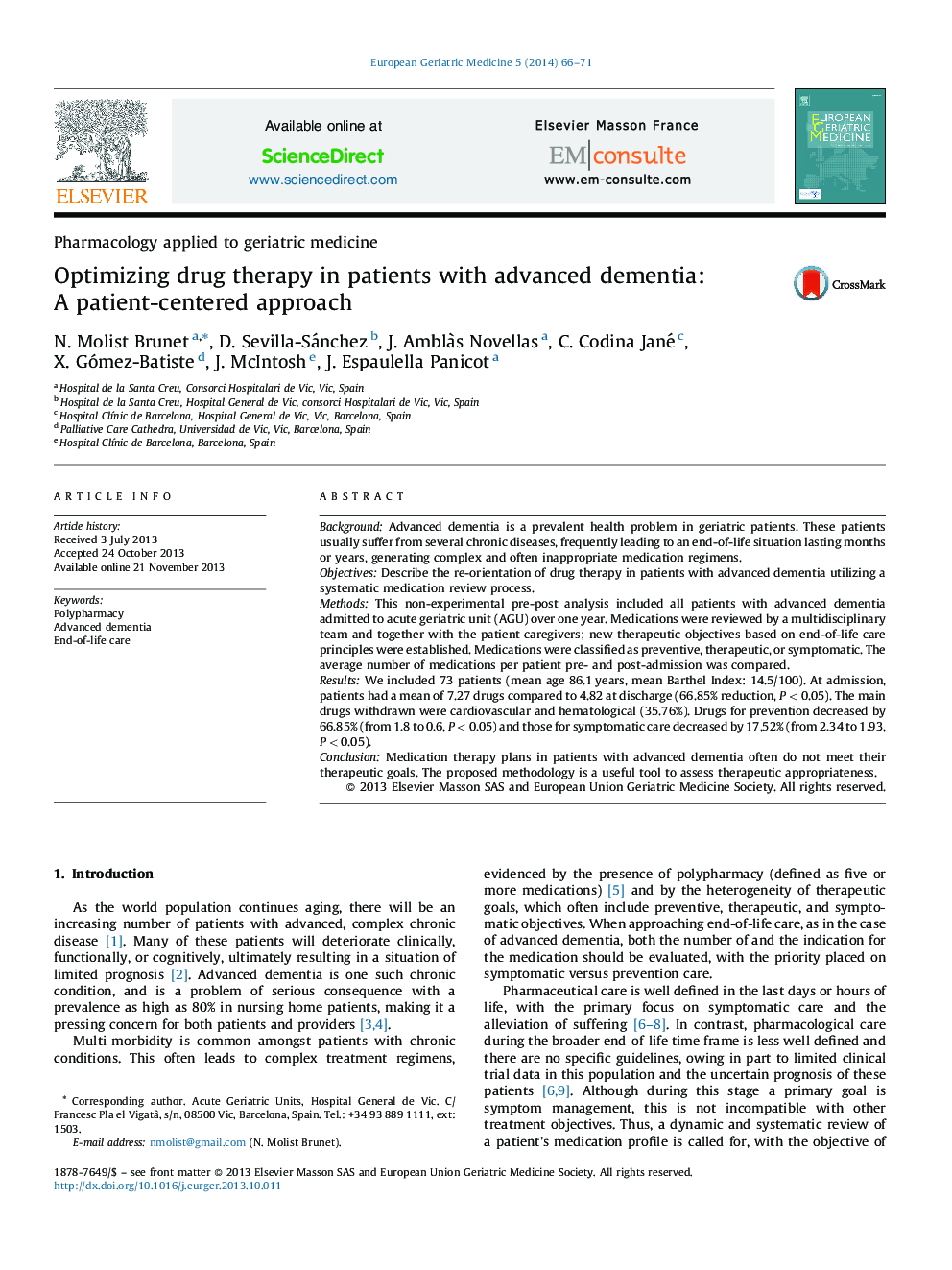| Article ID | Journal | Published Year | Pages | File Type |
|---|---|---|---|---|
| 3324242 | European Geriatric Medicine | 2014 | 6 Pages |
BackgroundAdvanced dementia is a prevalent health problem in geriatric patients. These patients usually suffer from several chronic diseases, frequently leading to an end-of-life situation lasting months or years, generating complex and often inappropriate medication regimens.ObjectivesDescribe the re-orientation of drug therapy in patients with advanced dementia utilizing a systematic medication review process.MethodsThis non-experimental pre-post analysis included all patients with advanced dementia admitted to acute geriatric unit (AGU) over one year. Medications were reviewed by a multidisciplinary team and together with the patient caregivers; new therapeutic objectives based on end-of-life care principles were established. Medications were classified as preventive, therapeutic, or symptomatic. The average number of medications per patient pre- and post-admission was compared.ResultsWe included 73 patients (mean age 86.1 years, mean Barthel Index: 14.5/100). At admission, patients had a mean of 7.27 drugs compared to 4.82 at discharge (66.85% reduction, P < 0.05). The main drugs withdrawn were cardiovascular and hematological (35.76%). Drugs for prevention decreased by 66.85% (from 1.8 to 0.6, P < 0.05) and those for symptomatic care decreased by 17,52% (from 2.34 to 1.93, P < 0.05).ConclusionMedication therapy plans in patients with advanced dementia often do not meet their therapeutic goals. The proposed methodology is a useful tool to assess therapeutic appropriateness.
